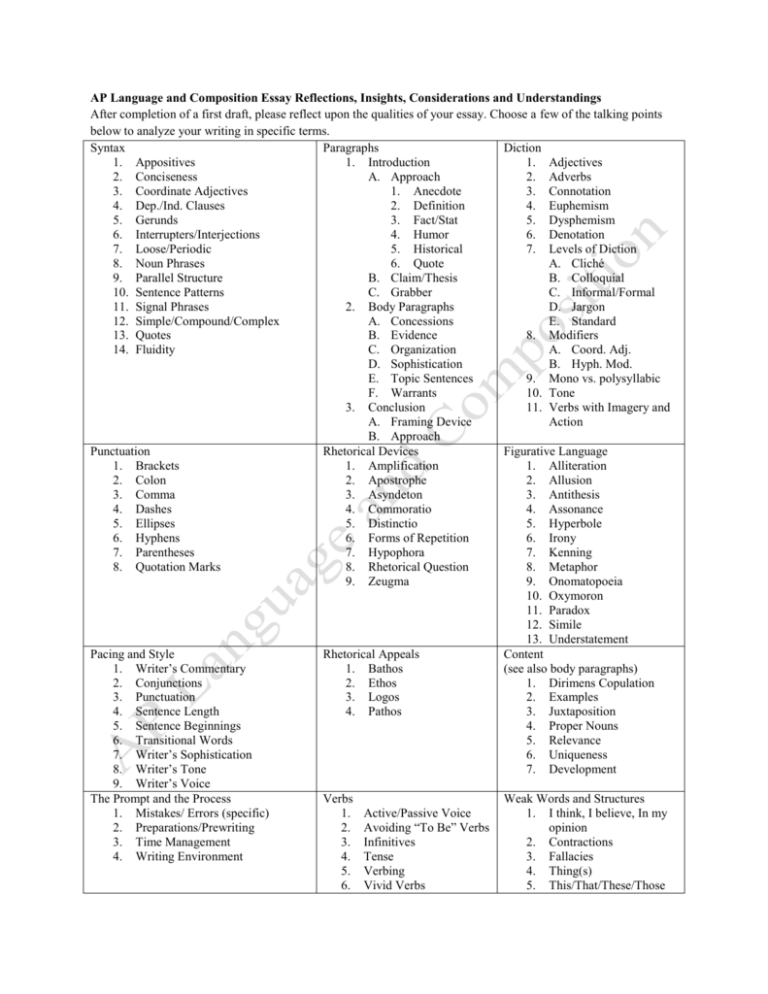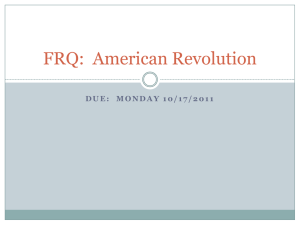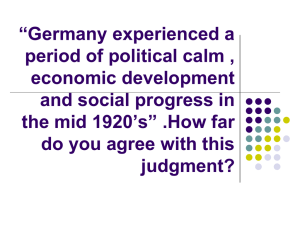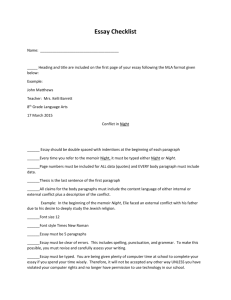AP Language and Composition Essay Reflections, Insights
advertisement

AP Language and Composition Essay Reflections, Insights, Considerations and Understandings After completion of a first draft, please reflect upon the qualities of your essay. Choose a few of the talking points below to analyze your writing in specific terms. Syntax Paragraphs Diction 1. Appositives 1. Introduction 1. Adjectives 2. Conciseness A. Approach 2. Adverbs 3. Coordinate Adjectives 1. Anecdote 3. Connotation 4. Dep./Ind. Clauses 2. Definition 4. Euphemism 5. Gerunds 3. Fact/Stat 5. Dysphemism 6. Interrupters/Interjections 4. Humor 6. Denotation 7. Loose/Periodic 5. Historical 7. Levels of Diction 8. Noun Phrases 6. Quote A. Cliché 9. Parallel Structure B. Claim/Thesis B. Colloquial 10. Sentence Patterns C. Grabber C. Informal/Formal 11. Signal Phrases 2. Body Paragraphs D. Jargon 12. Simple/Compound/Complex A. Concessions E. Standard 13. Quotes B. Evidence 8. Modifiers 14. Fluidity C. Organization A. Coord. Adj. D. Sophistication B. Hyph. Mod. E. Topic Sentences 9. Mono vs. polysyllabic F. Warrants 10. Tone 3. Conclusion 11. Verbs with Imagery and A. Framing Device Action B. Approach Punctuation Rhetorical Devices Figurative Language 1. Brackets 1. Amplification 1. Alliteration 2. Colon 2. Apostrophe 2. Allusion 3. Comma 3. Asyndeton 3. Antithesis 4. Dashes 4. Commoratio 4. Assonance 5. Ellipses 5. Distinctio 5. Hyperbole 6. Hyphens 6. Forms of Repetition 6. Irony 7. Parentheses 7. Hypophora 7. Kenning 8. Quotation Marks 8. Rhetorical Question 8. Metaphor 9. Zeugma 9. Onomatopoeia 10. Oxymoron 11. Paradox 12. Simile 13. Understatement Pacing and Style Rhetorical Appeals Content 1. Writer’s Commentary 1. Bathos (see also body paragraphs) 2. Conjunctions 2. Ethos 1. Dirimens Copulation 3. Punctuation 3. Logos 2. Examples 4. Sentence Length 4. Pathos 3. Juxtaposition 5. Sentence Beginnings 4. Proper Nouns 6. Transitional Words 5. Relevance 7. Writer’s Sophistication 6. Uniqueness 8. Writer’s Tone 7. Development 9. Writer’s Voice The Prompt and the Process Verbs Weak Words and Structures 1. Mistakes/ Errors (specific) 1. Active/Passive Voice 1. I think, I believe, In my 2. Preparations/Prewriting 2. Avoiding “To Be” Verbs opinion 3. Time Management 3. Infinitives 2. Contractions 4. Writing Environment 4. Tense 3. Fallacies 5. Verbing 4. Thing(s) 6. Vivid Verbs 5. This/That/These/Those AP Language and Composition Essay Reflections, Insights, Considerations and Understandings Using the chart on the other side of this page, write a reflection that discusses some of the talking points available. Please be specific in your commentary. Below, I have provided exemplars of acceptable and unacceptable essay reflections. Please use the Praise-Question-Polish (PQP) approach to offer your analysis. Inaccurate Reflection Commentary: This prompt was difficult to write. I hate argumentative essays, and I didn’t know where to start. I used a lot of examples, but I am unsure of which one is the best, or if I even answered the prompt. I feel like I was clear in the beginning, but I lost sense of what the prompt was asking near the end. My body paragraphs lack coherence, and I will probably have to rewrite this essay, maybe even type it because I have bad handwriting. Satisfactory Reflection Commentary: Praise After the topic sentence in the first body paragraph (line 22), the dirimens copulation regarding Kenneth’s assertion that “America’s values in petroleum dependency…ranges according to civil war in the oil producing nations” offers a stark contrast to the three subsequent body paragraphs to follow. In essence, the concession paragraph(first body paragraph) that I created elicits the nation’s polemical feelings about America’s conflicting attitude toward foreign oil dependency, a debate that produces the anti-bipartisan sentiments in Washington. Question (optional) Should I use alliteration in lines 28-29 instead of assonance? I was thinking that the harsh consonant sounds might create a more belligerent tone to the paragraph-the B-sound, perhaps. Polish The grabber is too awkward for the rest of the introductory paragraph; note the use of a personal anecdote in lines 310-such a story is too long for the entire essay and leaves a disproportional feeling to the rest of the essay. For example, look at lines 22-25; that’s the entire body paragraph-too short to maintain a balanced essay that offers any significant insight. In addition, the introductory paragraph lacks any transitional words, thus creating a choppiness from my anecdote to the essay’s thesis statement in line eleven.








